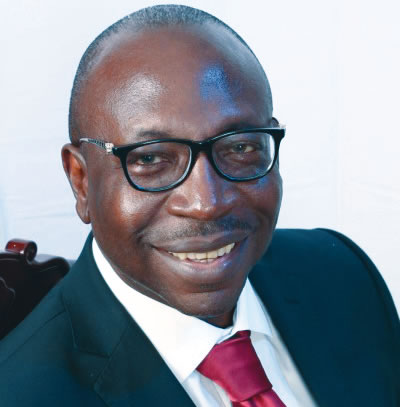2020 budget: NASS proposes N727.4bn increase in expenditure

.Increase Customs revenue to N1.5 trn, jacks up oil revenue by N172bn
.Pegs new borrowing at N1.5tn, increases capital to MDAs by N357bn
As the nation awaits the presentation of the 2020 appropriation bill by President Muhammadu Buhari to the National Assembly next Tuesday, the legislature has proposed an increase of N727.4 billion in Federal Government estimated expenditure from N10.002 trillion to N10.729.4 trillion.
Read Also: Ihedioha wants security agencies to rid state of criminals
The proposed increment in expenditure is predicated on proposed increase in revenue from government owned enterprises, expected increase in revenue from jacking up of crude oil benchmark from $55 per barrel to $57 per barrel and amendment to the Fiscal Responsibility Act and other laws of the revenue generating agencies.
These were part of the recommendations made by the Joint Committees of the National Assembly on Finance on the 2020- 2022 Medium Term Expenditure Framework (MTEF) and Fiscal Strategy Paper (FSP) ratified on Thursday after an extensive deliberation on the reports of the committee.
Expatiating on the recommendations, Chairman of the joint committee on Finance, Senator Adeola Olamilekan (Lagos West), said though the Nigeria Custom Service (NSC) proposed N942.6 billion for the 2019 fiscal year, surpassing the proposed income by earning N1 trillion in just nine months.
He said the “joint committee commends the NCS for exceeding the targeted revenue despite the global economic challenges and closure of the Nigerian borders. The revenue target of NCS should be increased to N1.5 trillion, he stated.
“The sum of N557.4 billion from the revenue increment of NCS be used to reduce borrowing by N200 billion and increase capital expenditure thereby decreasing the size of the budget deficit from N1.7 trillion to N1.5 trillion and also increase the total capital available to MDAs by N357 billion, from N1.01 trillion to N1.367 trillion.
The National Assembly proposed an increase of N172 billion in earnings on oil by recommending the adoption of $57 per barrel as crude oil benchmark price for the 2020 fiscal year.
Adeola said ” the saving on income accruing from the increase of the benchmark amounting to N172 billion which represent the Federal Government portion of the $2 added to the benchmark be used to pay salaries and emoluments of the proposed N30,000 new employees.
The committee also recommended the adoption of N1.5 trillion as the amount for the new borrowing as a result of reduction of N200 billion which was sources from the increase of revenue target of Nigeria Custom Service.
The chairman said “however, borrowing must be project tied. In borrowing more government must remain focused and ensure that it is used to fund critical projects that will increase productivity and contribute to finance financing such debt”.
To further shore up government revenue base, the National Assembly called for an urgent review/amendment to the Financial Responsibility Act and the various laws of the revenue generation agencies to align with current realities.
This was necessitated by failure of some revenue generating agencies to comply with relevant extant law of the Act which stipulates payment of 80% of operational surpluses to the Consolidated Revenue Fund.
However, the legislature frowned at both the Nigerian National Petroleum Corporation (NNPC) and the Central Bank of Nigeria (CBN) for flouting the FRA Act.
The National Assembly, therefore, called for proper investigation on activities of the NNPC to ascertain the actual cost associated with the Joint Venture agreement and also a proper investigation on the e – collection stamp duties domiciled with Central Bank of Nigeria for the past years, so as to show probity and accountability and of course increase the revenue base of the country.
In his comment, Senate President, Ahmad Lawan, was happy that the 9th National Assembly was able to pass the MTEF/ FSP in an unprecedented record time due to the hard work and resilience of the committee.
He urged the Finance Committee to charge the Federal Inland Revenue Service (FIRS) to widen the tax payment catchment net to generate more fund to offset the social safety net programmes of the Federal Government.
Lawan said genuine diversification programme will strengthen the economy base especially agriculture, tourism and travels and to monitor the procurement process to avoid cost inflation on projects.
He said the legislature will monitor this during budget defence by MDAs.
Recall that the Senate and House of Representatives at their sitting on Thursday, 26th September, 2019, considered the request of President Buhari on the 2020 MTEF/FSP and referred same to the relevant committees for further legislative action.
The MTEF/FSP is a budget formulation technique whereby the government establishes a credible procedure for allocating available public resources to strategic priorities while ensuring overall fiscal and sustainability.








